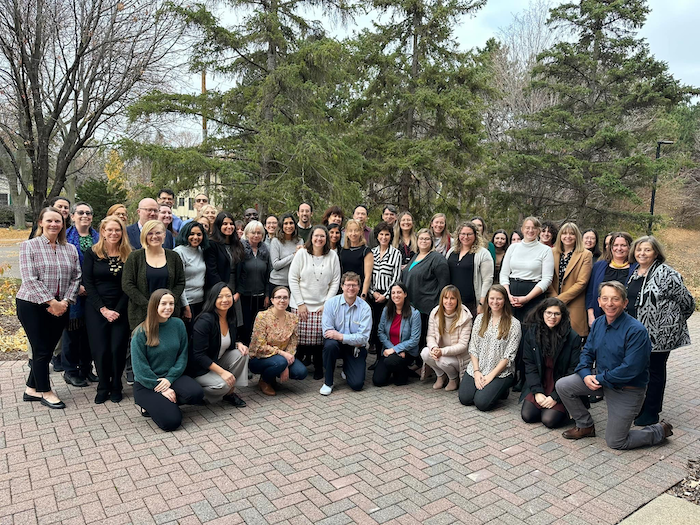
On November 4, more than 40 researchers attended the Baby Siblings Research Consortium (BSRC) meeting at the Masonic Institute for the Developing Brain (MIDB). The BSRC is an international multidisciplinary collaborative community of researchers committed to characterizing the earliest signs of autism spectrum disorder (ASD), primarily by studying infants who have an older sibling diagnosed with ASD. The meeting brought researchers from across the US and Canada to discuss recent BSRC research advances. Highlights included moving closer to biomarker-based, pre-symptomatic detection of risk and expanding our understanding of what qualifies as high-risk to include rare genetic disorders and babies who are born premature.
MIDB Researcher and Institute of Child Development Associate Professor Jed Elison hosted the meeting and highlighted how MIDB service hubs are supporting ongoing research at the University of Minnesota and beyond to identify children who are at highest likelihood of developing ASD. Throughout the meeting, attendees also learned about CEHD research by Dr. Jason Wolff (Educational Psychology) and Dr. Jessica Simacek (ICI) testing the feasibility of a pre-symptomatic intervention for ASD, and work by Dr. Casey Burrows (Pediatrics) evaluating whether ASD screening and diagnostic tools are working comparably in boys and girls at high-likelihood of developing ASD. BSRC attendees loved getting to see the new MIDB building and try out some of Minneapolis’s best food offerings including Wally’s and Owamni. BSRC funder, the Autism Science Foundation tweeted after the meeting, saying “[we] left the meeting enthusiastic about the BSRC’s great work […]. A big thank you to Jed Elison and his team at UMN for hosting us!”



